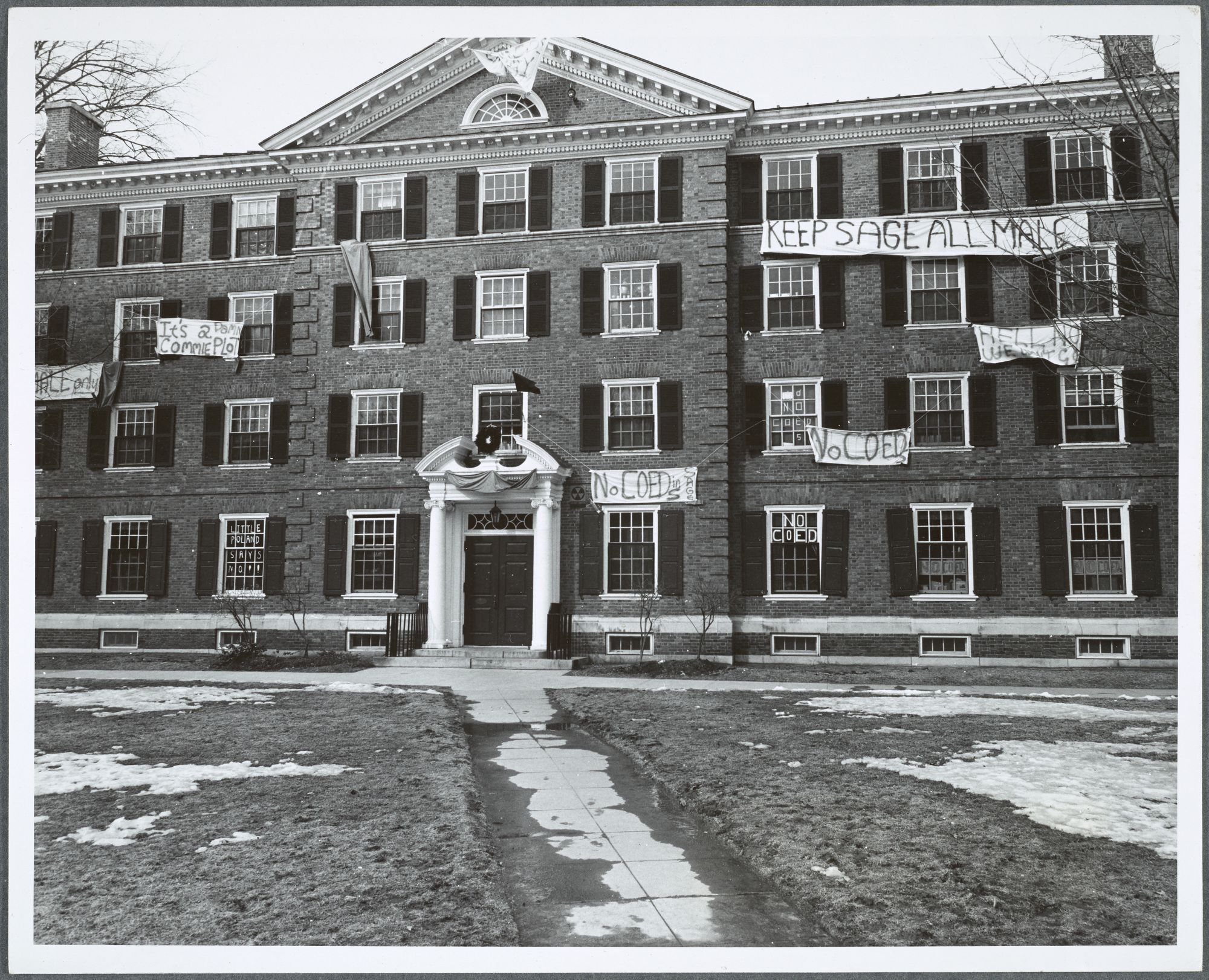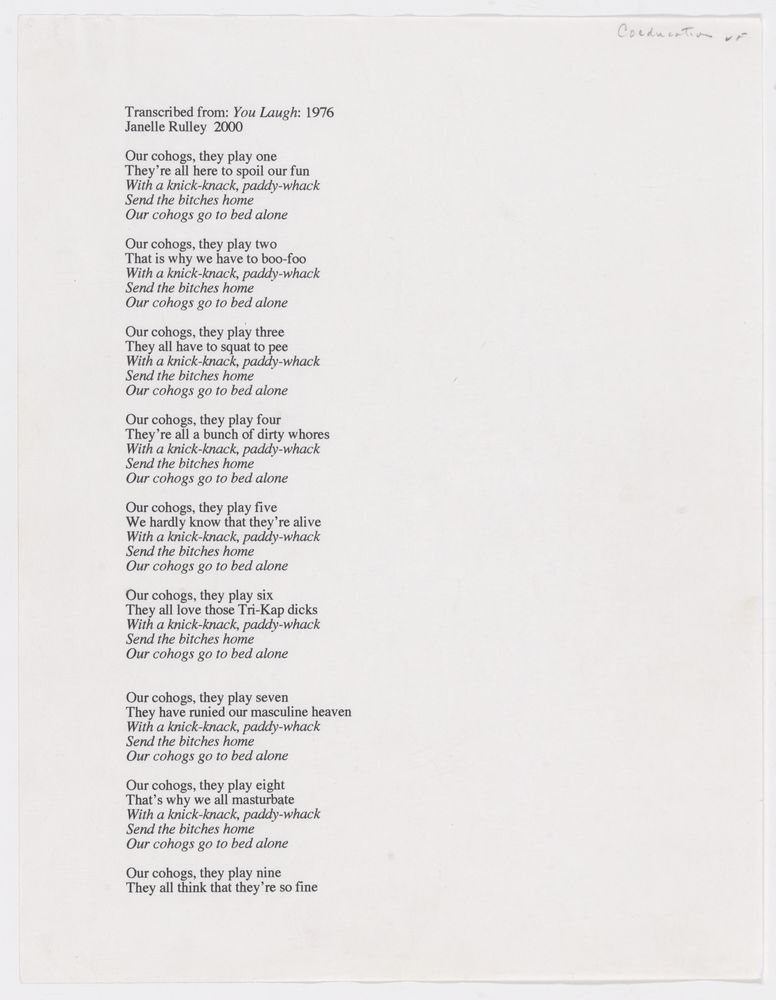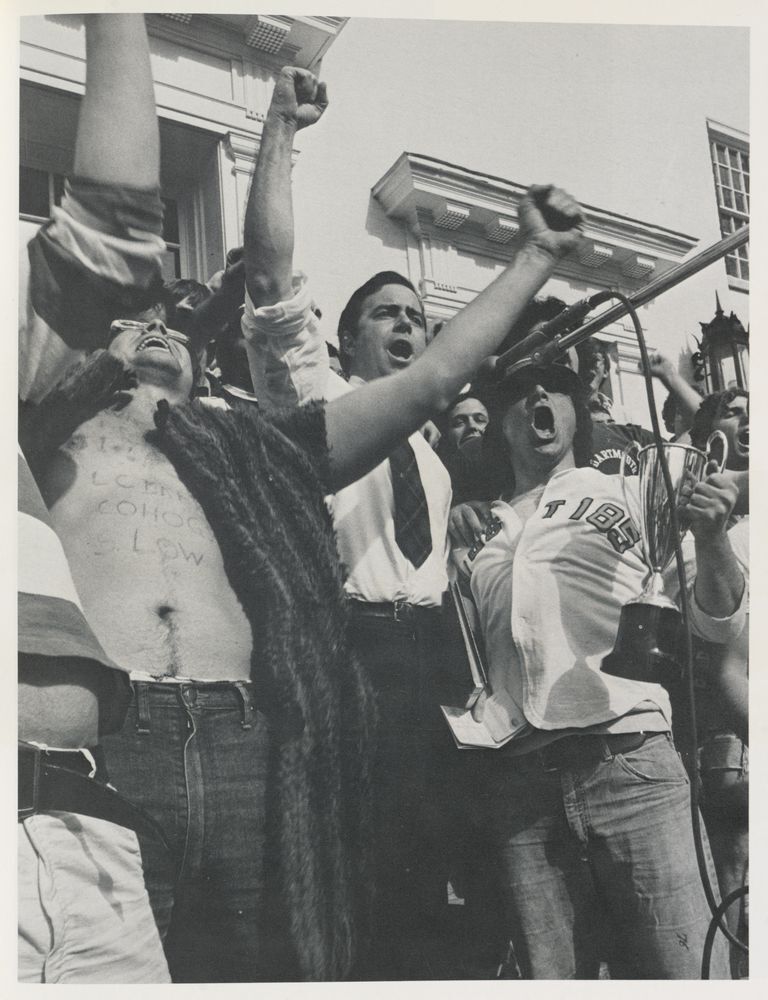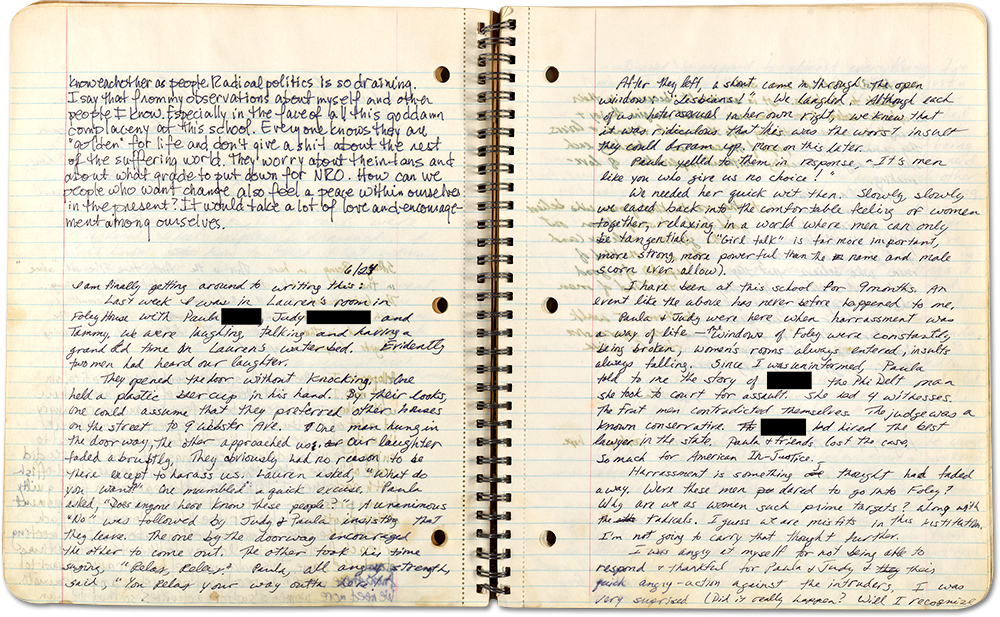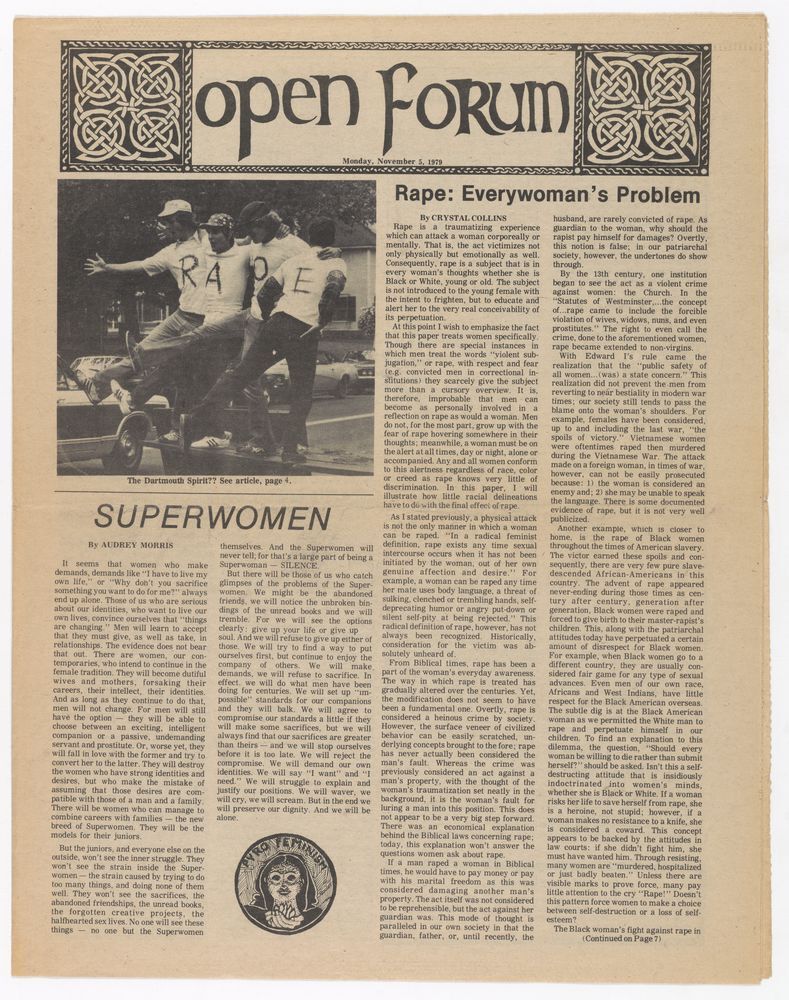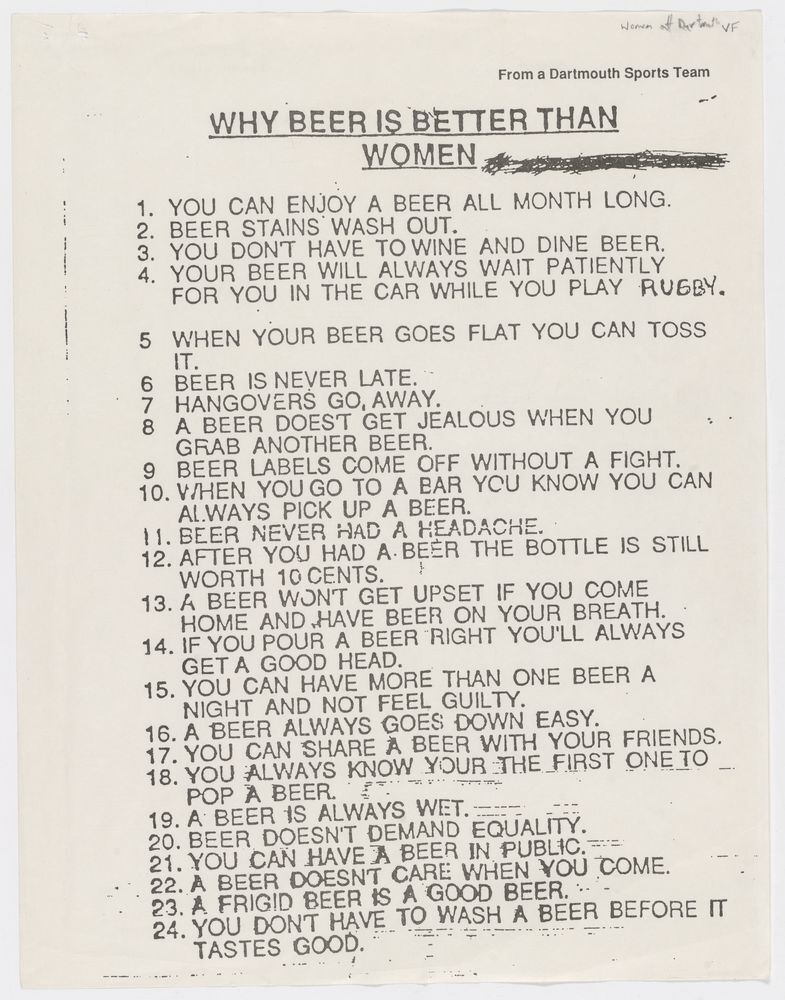“Alice in Wonderland”
College Vice President, Ruth Adams, joined Dartmouth’s administration to help with the historic transition in 1972. In her convocation address, Adams observed, “there is a kind of wonderland quality in coming to Dartmouth” as a woman. Undoubtedly, the women who arrived at campus for the first year of coeducation shared Adams’ sentiments. The ratio of male to female students was 8:1. While a majority of Dartmouth’s male students supported coeducation, there was a vocal and disruptive minority that made their distaste for coeducation and their female peers known through acts of aggression, discrimination, and harassment.
Previous: Arrival: September 5, 1972 -- Next: Movements Toward Equality – Responses to Backlash

